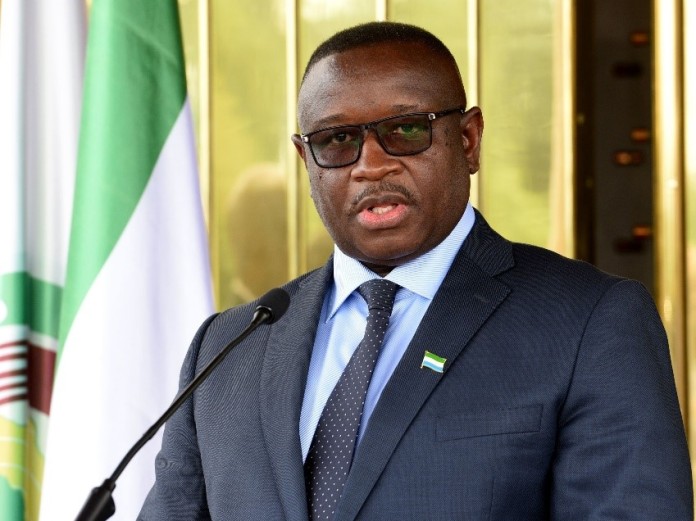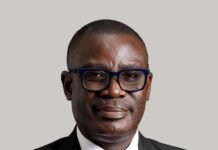During the signing of a multimillion-dollar Regional Emergency Solar Power Intervention project (RESPITE) supported by multilateral partners for the Governments of Sierra Leone, Chad, Liberia, and Togo the President Julius Maada Bio presided.
“The choices and decisions we make today will shape the continent’s energy sector for decades. I am, therefore, very pleased about the collaboration and commitments between our Governments and the World Bank that have delivered this $311M project. This is an investment in our region’s future.
“The signing of this Regional Emergency Solar Power Intervention Project is a momentous occasion that marks a significant step towards regional integration efforts to provide reliable and sustainable energy to all our citizens.
“But this event is even more significant. Our sub-regional efforts at expanding our economies are confronted with persistent and rather formidable energy challenges. We, in the sub-region, bear some of the greatest burdens of the Russia-Ukraine conflict and the resulting global economic impact,” he said.
President Bio said he valued the impactful voices and presence at this event of the World Bank Country Manager and team, country managers and representatives of the African Development Bank, the International Finance Corporation, Country Representatives from IMF, USAID, and West African Power Pool.
“Let me acknowledge, with gratitude, the vision and commitment of my brothers, the Presidents of Chad, Liberia and Togo respectively, to this regional venture as we work to improve the quality of life for our citizens.
“At the same time, our Governments will keep in step with our global commitments on climate actions. Our Governments remain open to cleaner energy transitions and our countries are open to investments in building greener and more sustainable energy futures.
“We collectively take this bold step in the right energy direction. RESPITE is the beginning of a revolution in energy supply and access in our respective countries, and I again thank the World Bank for this innovative and stellar initiative. Rest assured of my full support as the newly established Regional Technical Committee and the RESPITE Coordination Unit implement this project,” the President concluded.
In his statement, Director of Infrastructure in the World Bank’s Africa West region, Franz Drees-Gross, said the Bank had agreed to double their support for energy access to west and central Africa while noting that countries in the region were spending 0.8% of their GDP to cover the increase in the fuel cost and beyond on what they were spending in subsidies.
He noted that RESPITE was coming at a critical time when the Russia-Ukraine war was hitting hard, adding that they were hoping that the implementation of the project would save 0.2% of the countries’ GDP on average annually but would also increase the supply of clean energy.
Sierra Leone’s Minister of Finance, Sheku Ahmed Fantamadi Bangura, who signed on behalf of his country, said he was happy to join his colleagues from the other countries to sign the project agreement that would reduce the burden of energy prices on governments.
He said the Government of Sierra Leone had spent a lot on subsidies for petroleum products, even more than what was projected, adding that Sierra Leone’s allocation of the grant would be used to develop solar powers in Newton and Lungi.
In his brief statement, Minister of Energy, Alhaji Kanja Sesay, who spoke on behalf of his colleague Ministers of Energy from the other four countries, thanked President Bio for gracing the occasion, adding that it was a show of his commitment to the energy sector.
He said the RESPITE project was a key initiative in their efforts to address the current power supply crisis in all four countries and across the region.
He also noted that the project was a direct response to the impact of the Ukraine war on the region but that it was also to create a platform for the acceleration of renewable energy and ensure regional alignment.
He concluded that the project would help the countries move from expensive to more prolific energy sources that would increase the supply of affordable and clean energy and also deal with crises of power supply.




